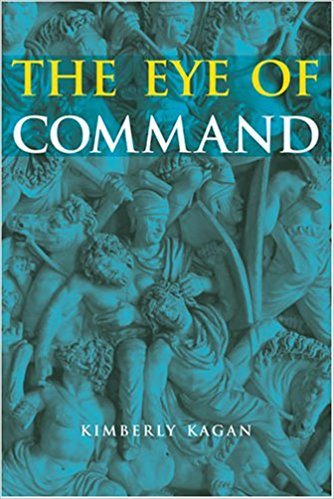Published in 1976, Sir John Keegan’s “The Face of Battle” was a ground-breaking work in military history studies, providing narrative techniques that served as a model for countless subsequent scholarly and popular military histories. Keegan’s approach to understanding battles stressed the importance of small unit actions and personal heroism, an approach exemplified in the narratives produced by reporters embedded with American combat troops in Iraq. Challenging Keegan’s seminal work, Kimberly Kagan’s “The Eye of Command” offers a new approach to studying and narrating battles, based upon an analysis of the works of the Roman military authors Julius Caesar and Ammianus Marcellinus. Kagan argues that historians cannot explain a battle’s outcome solely on the basis of soldiers’ accounts of small-unit actions. A commander’s view, however, helps explain the significance of a battle’s major events, how they relate to one another, and how they lead to a battle’s outcome. The “eye of command” approach also answers fundamental questions about the way commanders perceive battles as they fight them – questions modern military historians have largely ignored.
